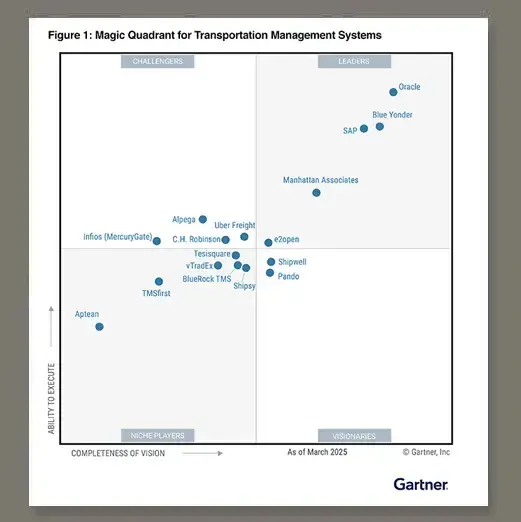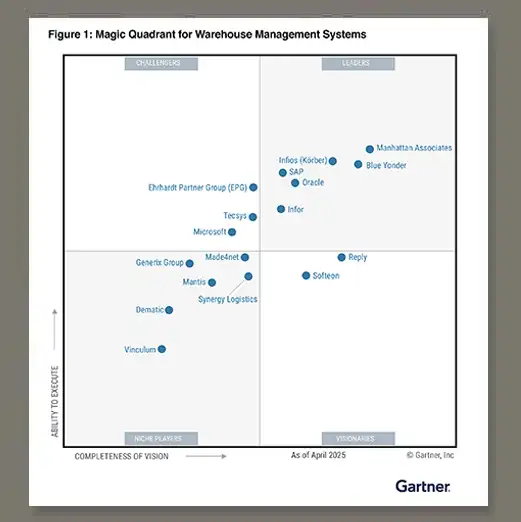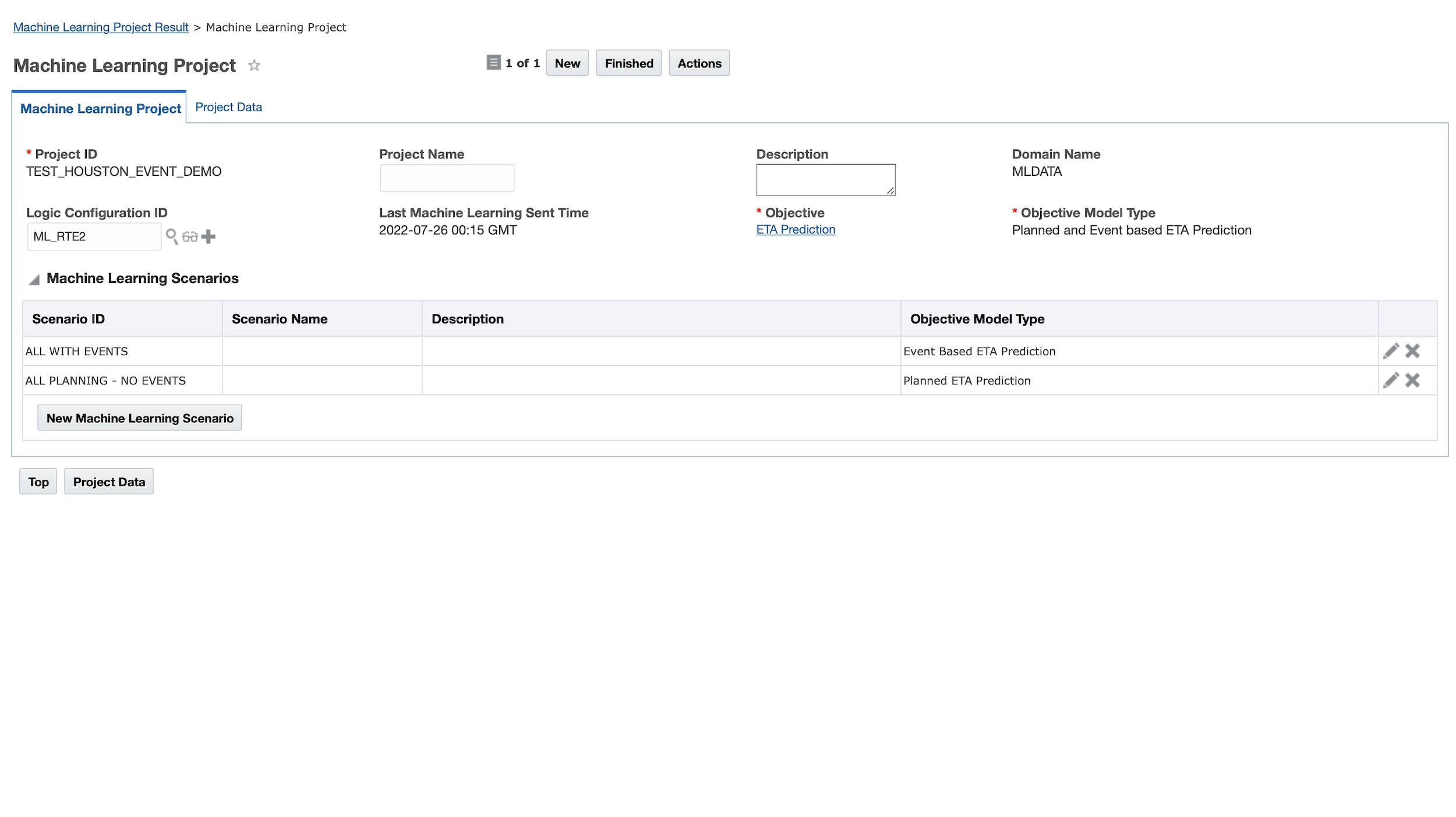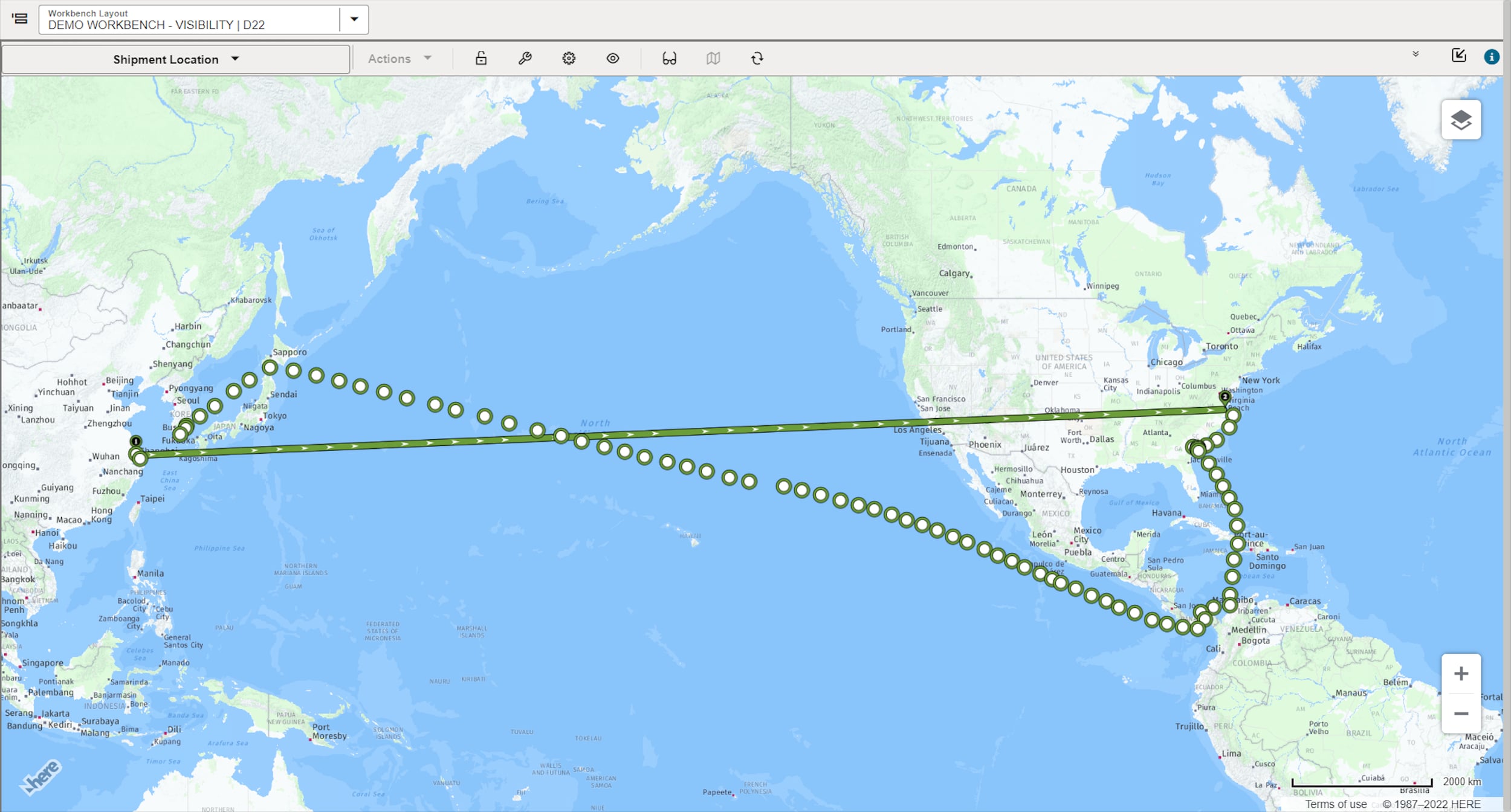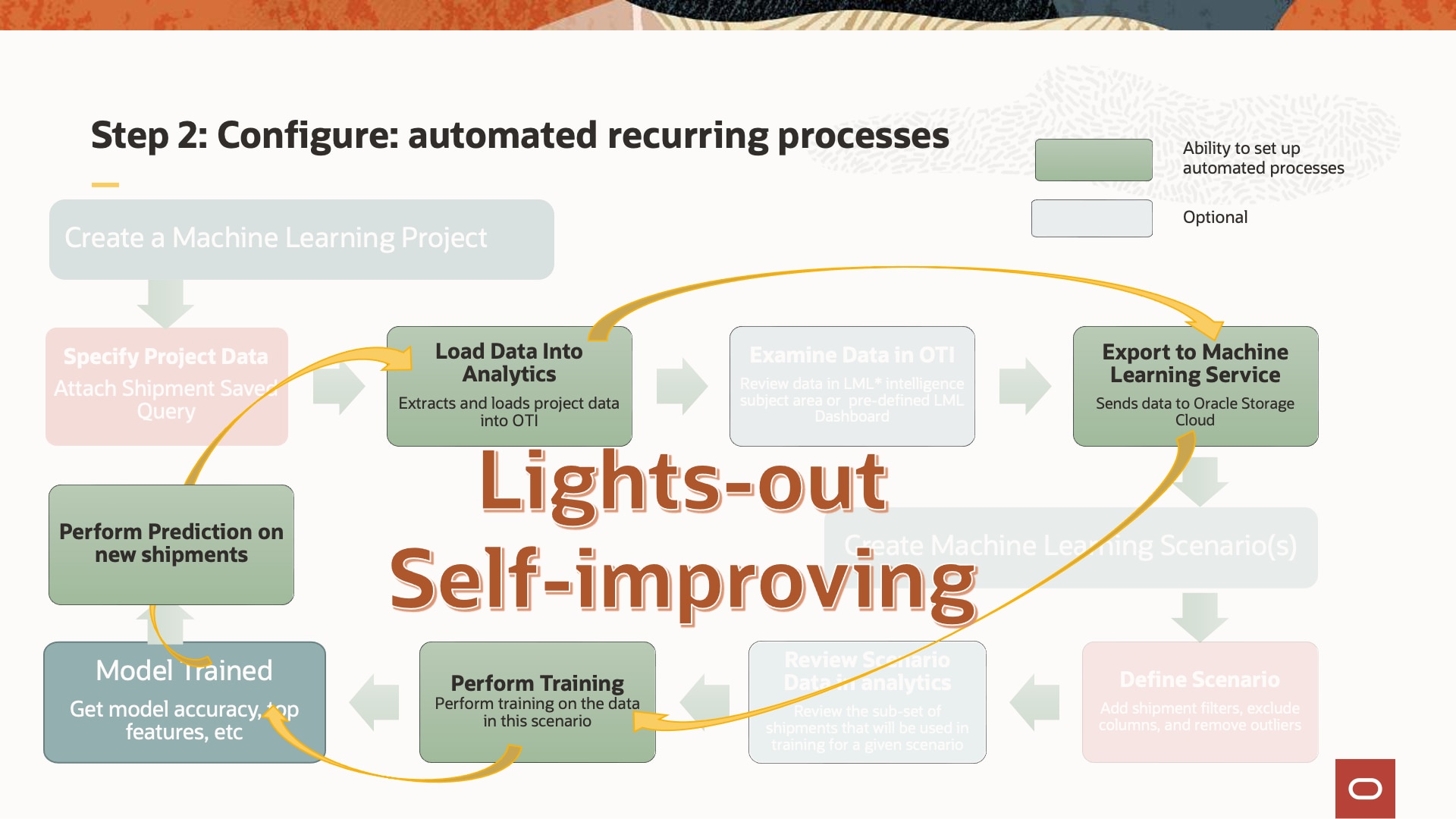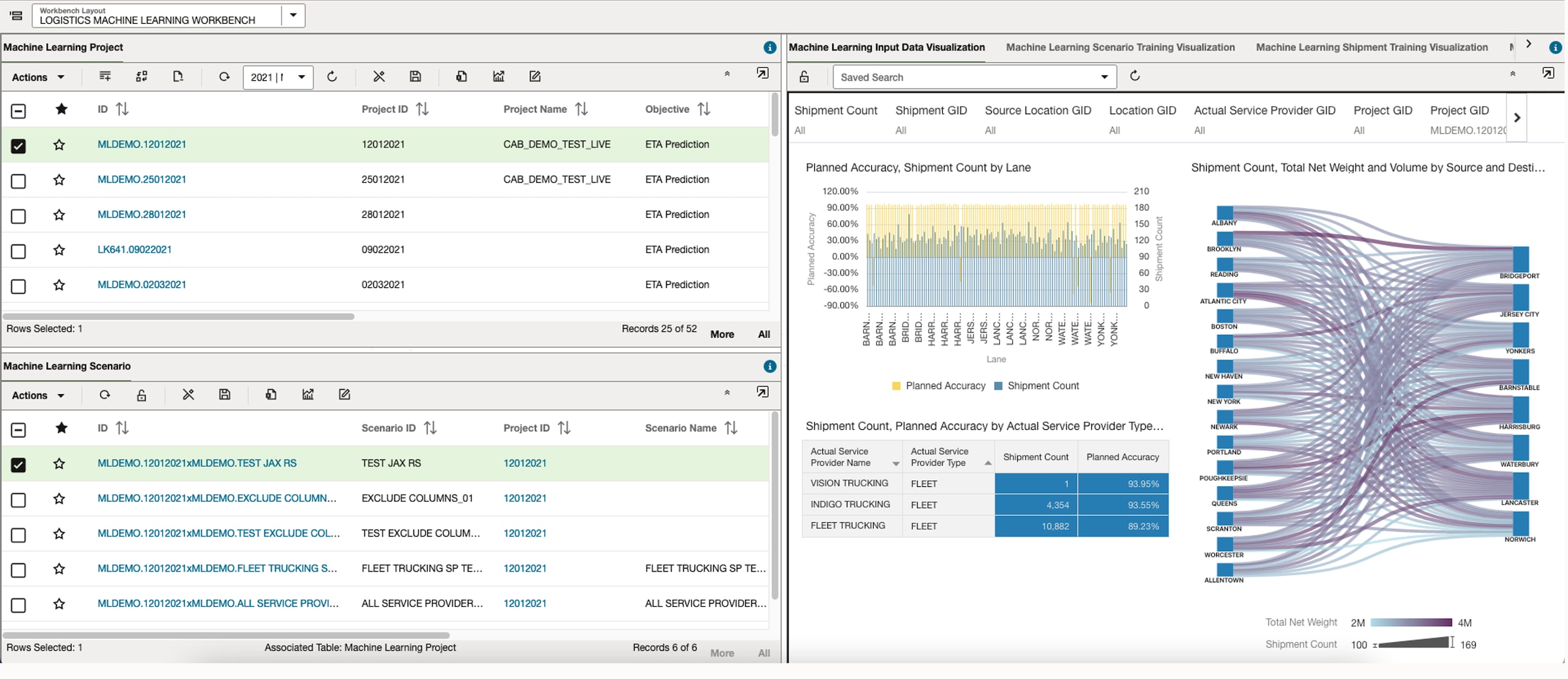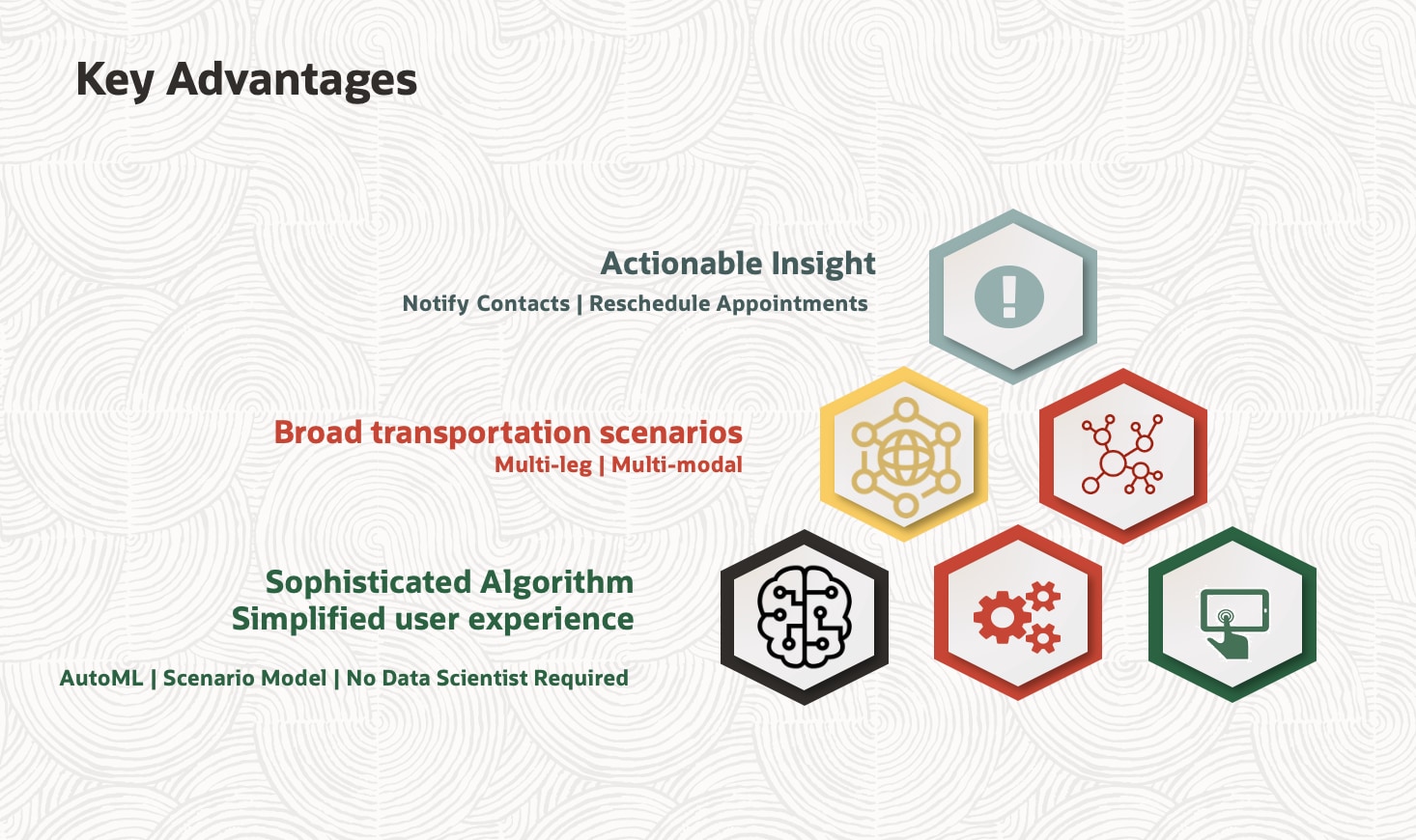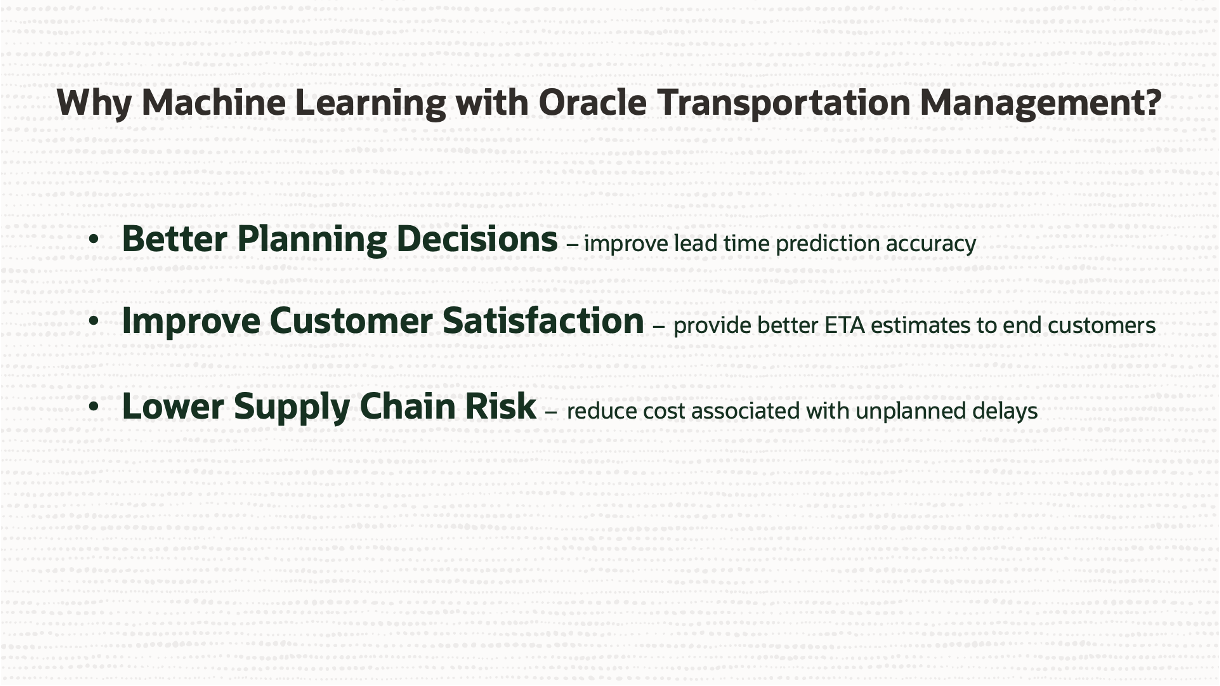Transportation Management
Manage all transportation activity throughout your global supply chain. Combining ease of use with industry-leading capabilities, Oracle Transportation Management enables you to run your logistics operations more efficiently, reduce freight costs and optimize service levels.
Learn about Oracle's transportation orchestration solution (2:24)
-
![]() Gartner® recognizes Oracle as a TMS Leader
Gartner® recognizes Oracle as a TMS Leader
Oracle has been named a Leader in the Gartner® Magic Quadrant™ for Transportation Management Systems for the 18th time.*
-
![]() Oracle a Leader in 2025 Gartner® Magic Quadrant™ for Warehouse Management Systems
Oracle a Leader in 2025 Gartner® Magic Quadrant™ for Warehouse Management Systems
Find out why Oracle was named a Leader in the Gartner Magic Quadrant for Warehouse Management Systems for the 10th consecutive year.**
-
![Supply chain disruptions are wreaking havoc on American lives]() Explore the Power of AI in Logistics
Explore the Power of AI in Logistics
Watch on demand to learn how an AI-powered supply chain can help you achieve perfect delivery.
Explore Transportation Management
Operational Planning
Optimize your logistics network
Determine the best way to fulfill transportation requirements from simple point-to-point to complex multimodal, multileg, and cross-dock operations.
Streamline bids and orders
Secure bids and efficiently plan inbound, outbound, and interfacility orders by collaborating with logistics service providers and shipping partners.
Build effective shipping plans
Identify historical shipping patterns and determine optimal asset utilization via efficient lane combinations of freight or cooperative routes.
Transportation Management
Maximize productivity through automated processes
Proactively manage the lifecycle of orders and shipments through automated milestone monitoring.
Automate freight billing and payment
Consolidate and execute transportation orders from multiple sources and eliminate inefficient and redundant settlement procedures.
Effectively measure performance and monitor trends
Make better supply chain decisions by providing greater insight into both internal operations and trading partner performance.
Fleet Management
Implement fleet-specific planning and optimization
Incorporate current state of the fleet in the planning and optimization process to fully utilize fleet resources with consideration of external carrier capabilities.
Leverage an integrated fleet environment
Manage all orders and shipments in a single system that considers all available fulfillment capabilities including contract and private transportation.
Monitor financial performance
Measure and control financial performance by leveraging capabilities for costing, payables, cost accruals, revenue recognition, and claim and dispute management.
Logistics Network Modeling
Determine impact of change and disruption
Stay ahead of changes with an adaptive logistics network. Perform detailed, what-if scenario modeling based on the operational details of your existing transportation network and to get highly accurate results.
Analyze dashboards and operational metrics
Compare results side-by-side to determine best course of action.
Digital Assistant
Provide real-time shipment status
Receive and respond to inquiries instantly and 24/7 and resolve issues faster while providing better customer service.
Gain better supply chain visibility
Reduce support expenditures and improve customer satisfaction by leveraging new channels for communication.
Machine Learning
Predict transit times accurately
Gain informed decisions on which carrier, route, and service level to use and improve lead time estimates.
Eliminate excess inventory
Lower inventory costs by reducing safety stock levels and warehousing costs.
Allocate resources efficiently
Reduce supply chain risk with lower unplanned delays and less need for expedited shipments and associated extra freight costs.

